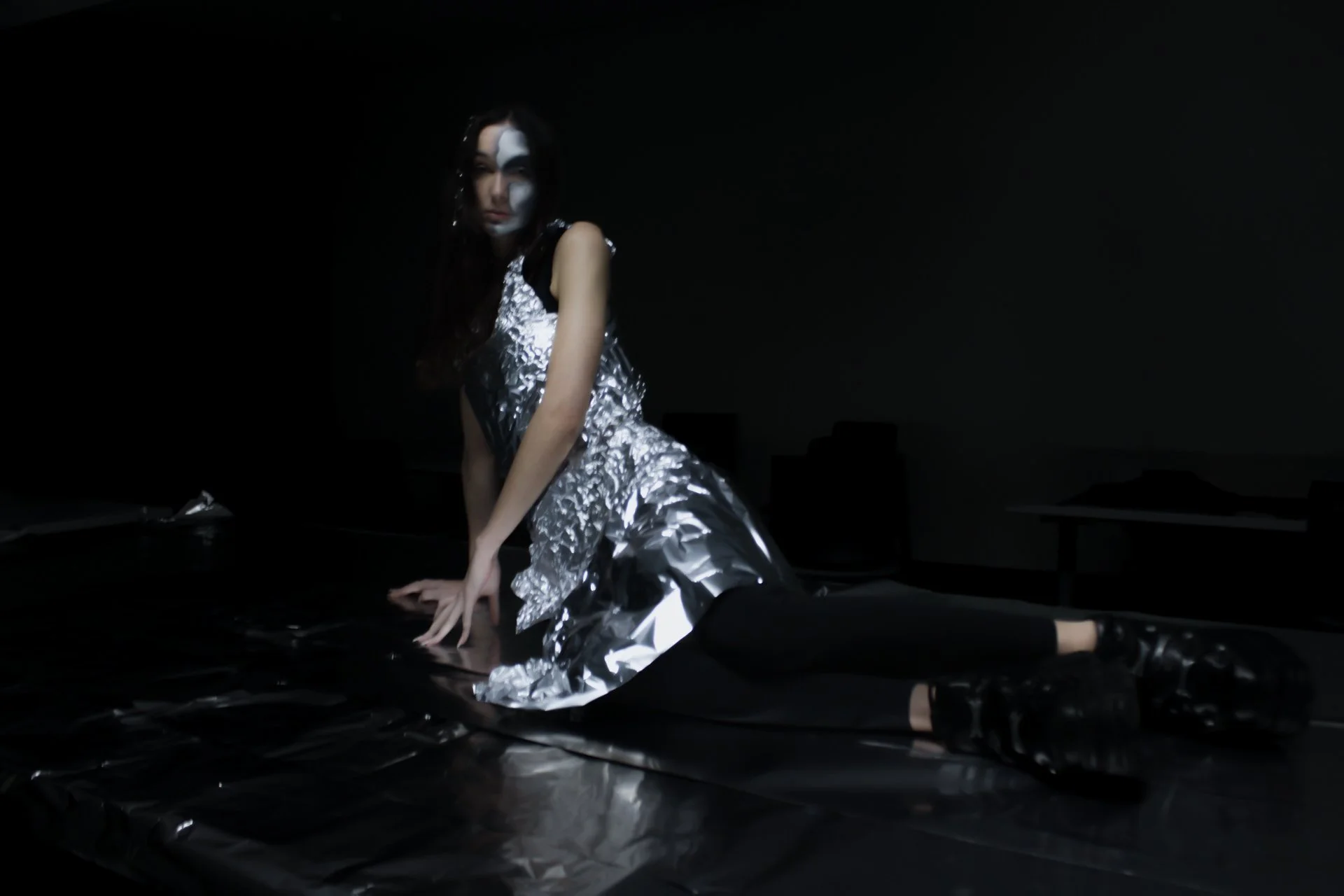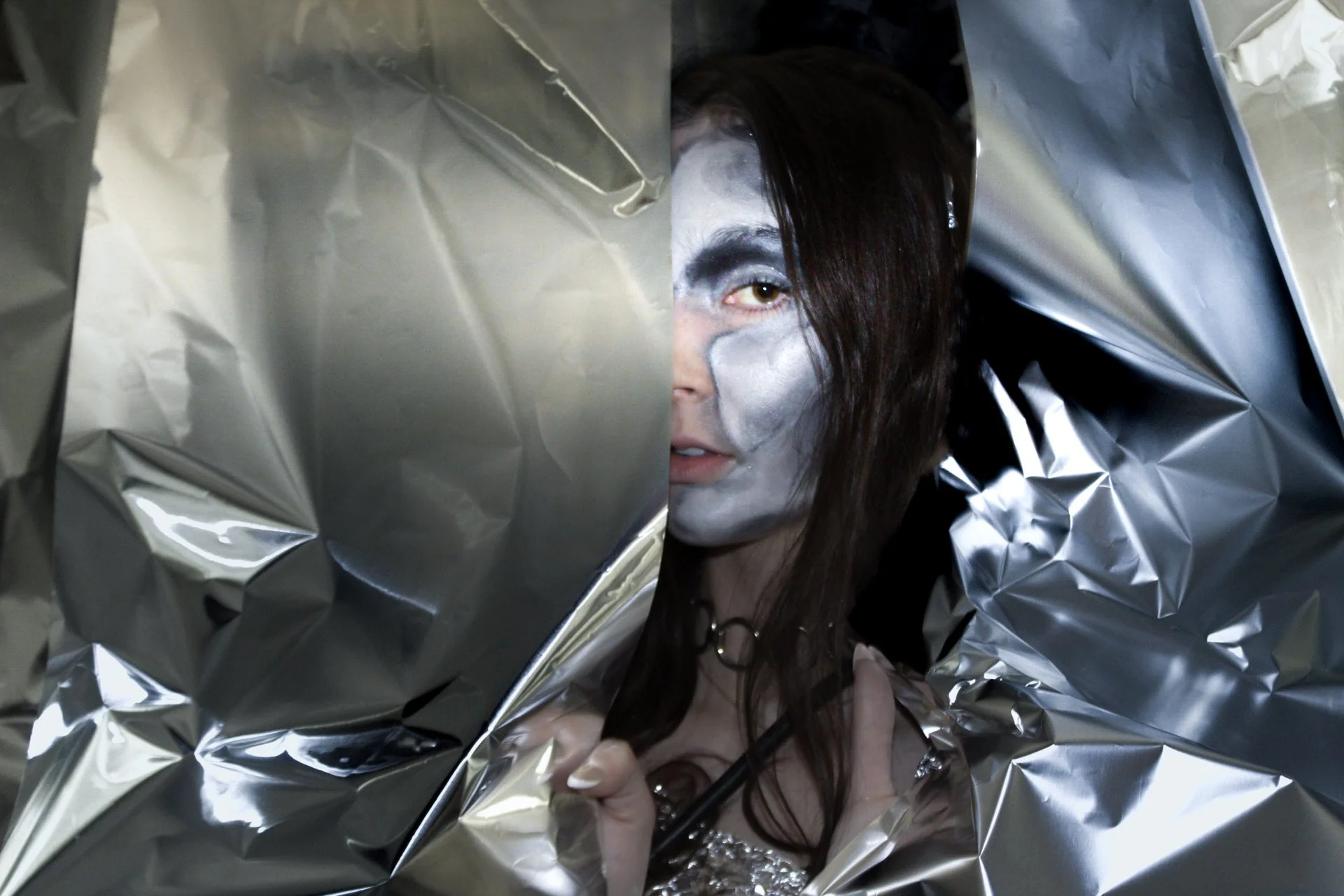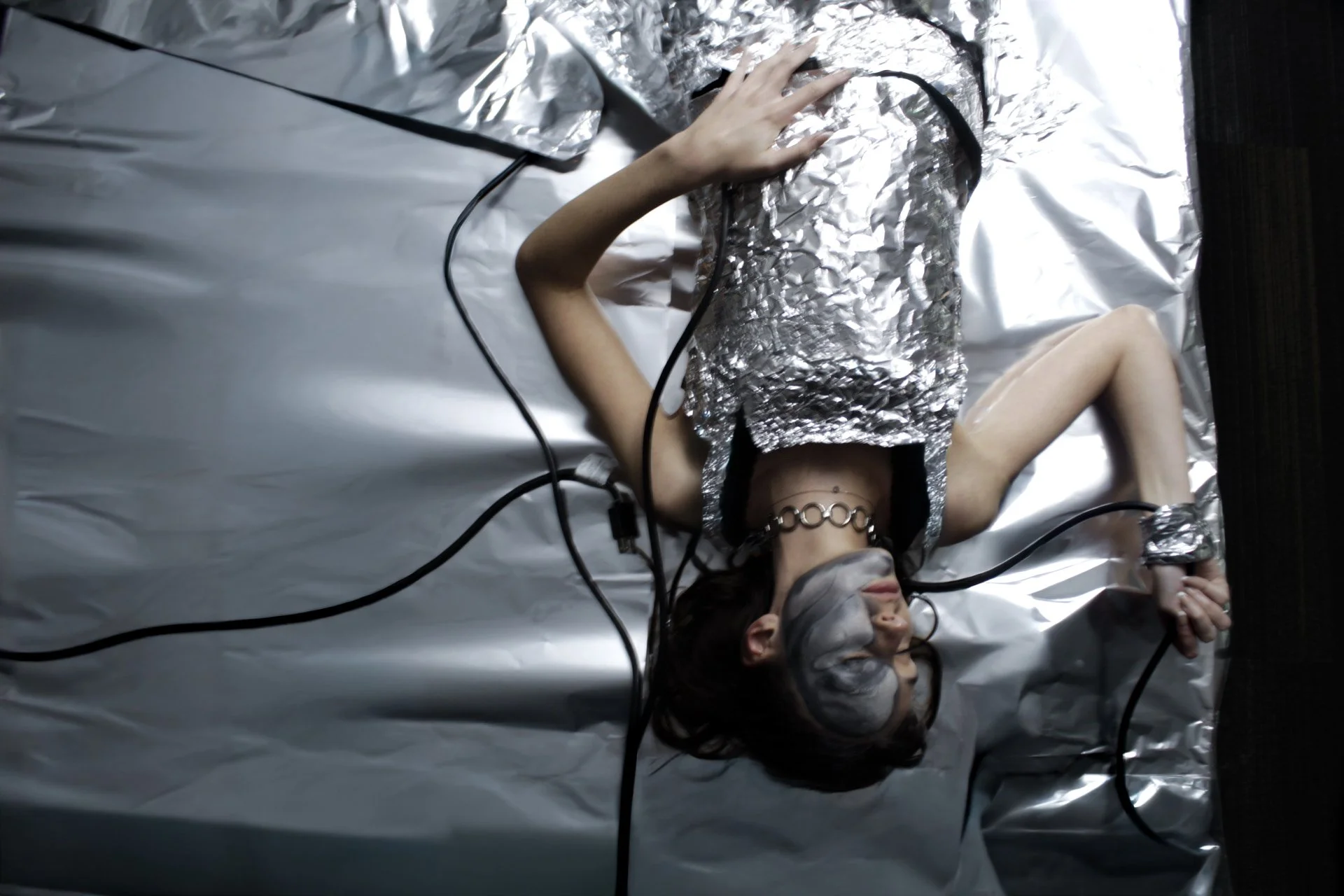Machine Girl
Men make god in their image. Their assistants, however, always come in the shape, size, and likeness of real, living women—skinned from their bodies and stripped off their faces. If established men can’t have a real, human woman be their mom, maid, and muse, then they’ll just make one from scratch. Evidenced by a trove of built-in artificial female assistants at the consumer’s disposal, the dynamic between “creator and created” remains a deeply terrifying one since the Myth of Prometheus.
Alex Garland’s not-so-out-there thriller, Ex Machina (2014), offers insight into the relationship between the prodigal male creator and his gendered creations. In a wave of disruptive technology, the prodigal male creator has the tools at his finger tips to give life. In essence, echoing the core themes of the Myth of Prometheus, the film speculates whether the man alone as the ultimate vessel of life is a wise move. Likewise, the bodily horrors explored in Garland’s film pose his audience a simple question to mull over: How vile and sadistic can people become when given dominion over those they create?
Ex Machina is a riveting film that evokes the uncanny—the feeling of disarray when confronted by something peculiar. There is no way to avoid this uncanny, even mystical force as humans' control over the unknown, the unexplored, is relinquished. This force may be rejected, accepted, or even worshipped. Today, that force is artificial intelligence, which has become a new, vibrant altar, a conduit for labor, love, and especially lust. The invention of the lusted-for creature, then, is the artificial woman who cannot make her own decisions.
In multiple scenes, we get a glimpse of Ava, played by Academy Award-winning actress Alicia Vikander. She is kept in a glass room, like an animal being observed in a zoo. Ava is the latest model of humanoid robots in Nathan’s collection. Nathan, played by Oscar Isaac, is a CEO who is seemingly down-to-earth, but exudes self-importance as he places himself above the rest of mediocre society. Nathan views Caleb, played by Domhall Gleeson, as an inhabitant of such a mediocre space filled with a plethora of starry-eyed men, ready to take over the world, but lacking the courage to do it. Through Nathan’s dialogue, the audience can understand that he sees Caleb as disposable or, at the very least, insignificant. This dynamic tenses up the atmosphere between Nathan and Caleb, who remind viewers of the alpha/beta male complex audiences have been exposed to before in movies like David Fincher’s Fight Club (1999). In the case of Garland’s Ex Machina, his approach is similar to unravelling this chaotic core of toxic masculinity: the fight for domination over the feminine.
Caleb, then, is presented as the prototypical “underdog.” Given his lack of knowledge and naivety, the audience is primed to receive information through his perception. As the story unfolds, layers upon layers of dialogue unravel to reveal the darker truth of Caleb's seemingly straightforward task. Caleb is told by Nathan that his job is to perform a Turing Test with Ava in multiple sessions to determine if she can convincingly pass as human. As the plot churns, Ava actively shapes Caleb’s perception of her, emphasizing her sensuality and feminine form by putting on dresses and wigs for him. Caleb becomes intrigued by Ava in both geek-like excitement over the elegance of her design and genuine sexual desire.
Caleb, who is initially shocked that Nathan created Ava to display sexual attraction akin to that of a human, becomes allured by her, which she uses to convince him to help her escape. Caleb, who grows to resent Nathan—both out of disgust for Nathan's disregard for his creations and jealousy for his intelligence and obnoxious savviness—finds himself impassioned by Ava, and he even imagines himself in the real world with her, outside of Nathan’s laboratory. Nathan, who is tricked into getting drunk by Caleb, is discovered to have closets full of female-coded robots stuffed in his bedroom closet like a serial killer who keeps his prized possessions not too far away from him. In the thick of loneliness and in desperation to become Ava’s knight in shining armor, Caleb is ultimately manipulated by Ava.
The final plot twist revealed in Ex Machina is that Nathan’s real test subject was Caleb, as he wanted to observe whether or not Ava was capable of orchestrating her dialogue and actions to manipulate Caleb. Though this is revealed to Caleb by Nathan, Caleb has already freed Ava from her glass cage. Ava goes as far as to kill Nathan, and leave Caleb for dead, trapped in Nathan’s house when the alarm system goes into lockdown.
The murder of the father, Nathan, was what freed Ava, the real protagonist of the film. In that instance, she killed who she had perceived as God and confirmed that he was still like the rest of humanity—flesh, bone, and blood. Ava no longer has to derive her meaning from her creator and in the final scenes, ventures out into the real world, dressed as a typical, upper-class woman in order to blend in. Unlike a more conventional arc where the underdog male character successfully wins the love interest and takes over the place of the male authority figure, Ex Machina turns the genre on its head.
Caleb, throughout the film, perceives Ava as a helpless ingénue, and in his tacit desires for intimacy—even from a robot—his libido, loneliness, and overall resentment towards Nathan initiate his own unbecoming.
In this manner, Caleb displays his own set of misogynistic characteristics, not unlike that of a more overtly crass, chauvinist Nathan. Both male characters approach Ava as an object to control—they just have different attitudes towards possessing her. Granted, Caleb’s type of attitude, that of infantilizing women to the point of dismissing their own volitions, is still tacitly accepted in modern society.
Whether one believes himself to be a tragic saint or god-like savant, patriarchal logic encourages the treatment of the feminine and female-likeness as a fashion accessory, a trophy for their dust-free pedestal, or a faceless object for masturbatory pleasure rather than genuine, emotional sex. Ex Machina’s critique, then, is that the excavation of women’s humanity is in pursuit of society’s goal post: ownership over the female body. Like a brand new car, the right look, feel, and touch are sought after more and more explicitly.
Both Nathan and Caleb see Ava as something to own, dominate, and use for sexual gratification. Nathan specifically taunts Caleb, claiming that he created his gendered, woman-coded creations with parts that parody the touch and feel of sexual intercourse. In a sense, Ava remained both playthings to Nathan, who was planning to destroy her after the test, and Caleb, who was ardently convinced that he was falling in love with Ava, a being whose sentience is questioned throughout the entire plot. Would she even have the ability to determine herself, or would she be forever ruled by her artifice in the real world? Does this debate over Ava’s free will even matter if her inventors and oppressors were abusive and obsessive?
Garland does not hand his audience a conclusion on a silver platter, leaving them to wonder. Ex Machina is a brilliant expose of the real, nuanced inner workings of the patriarchy. The film trespasses against the singular, one-dimensional archetype of the male hero and the innocent, damsel in distress female-coded character.
Indeed, Ava, by virtue of her manipulative intellect and well-informed perspective on male-male relationships, is able to outsmart both Nathan and Caleb and free herself. What viewers may claim as the truly terrifying message—artificial intelligence’s ability to surpass humanity as the “more superior being”—is trivial in comparison to the film’s core message. In actuality, the film is about male domination, through which both Nathan and Caleb’s hubris create the conditions for Ava’s final escape.
If the movie were to be shot from Ava’s perspective, she would be interpreted as the “final girl” rather than the terminator-like threat that the male characters perceive as threatening yet seductive. Ava’s representation as a complex female-coded character is as refreshing as it is telling; even a decade later, films still flatten their female characters into love interests or overcorrect them into cardboard cutouts of girlbosses—both lazy choices that refuse to explore moral grey areas that make films so moving. In other words, genuinely breathtaking films require exploration of the unsavory and unforgivable side of humanity.
Garland exudes brilliance in his screenwriting abilities, producing witty dialogue that captures the audience’s attention. Vikander is especially stunning and exceptional in her role. Though she played a robot, she brought emotional depth, fragility, and terror in her cold, antagonizing stares to her overall performance as Ava. Ex Machina, ahead of its time and considerably low-budget compared to other sci-fi films, accurately addresses the acute pain of what it feels like to be dehumanized—a kind of suffering that both free and unfree gendered creations can understand.
Written by Sidney Tesy, Photography: Noe Trujillo, Design: Erik Reichmeider, Social Media: Lauren St. John, Styling: Ty’lia Collier



